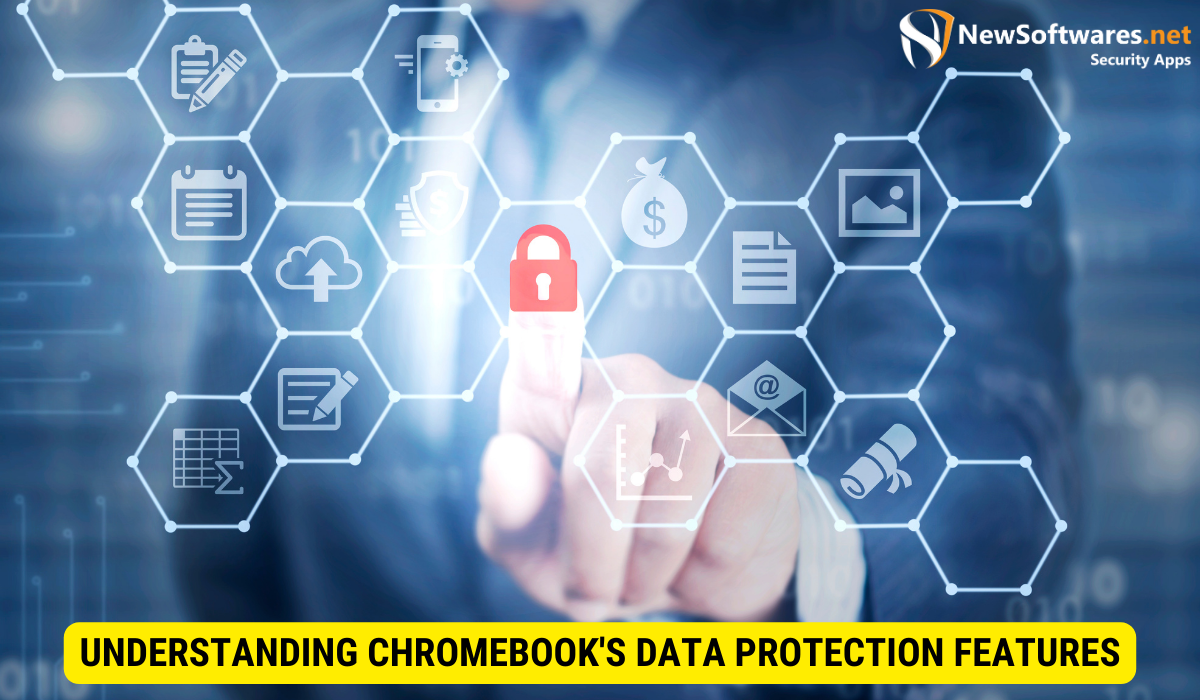Yes, Chromebook encrypts user data by default, ensuring that your files remain secure.
In today’s digital age, data protection is a paramount concern for individuals and organizations alike. With the rising reliance on cloud storage and online platforms, securing our sensitive data has become essential. One popular option for data storage and productivity is the Chromebook. But is your data encrypted by default on Chromebook? Let’s delve into this topic and explore the various aspects of Chromebook’s data protection features.
Understanding Chromebook’s Data Protection Features

Chromebooks are renowned for their robust security measures, designed to defend user data from unauthorized access. Central to this is the concept of data encryption. Put simply, encryption is the process of encoding data to make it unreadable to anyone without the proper decryption key. Chromebooks employ various encryption techniques to safeguard user information.
The Importance of Data Encryption
Data encryption is crucial because it ensures that even if someone gain illegal access to your device or files, they will not be able to make sense of the data. This protection extends to sensitive information such as personal documents, financial records, and login credentials. By encrypting your data, you add an extra layer of security, reducing the risk of data breaches and identity theft.
For example, imagine you have important financial documents stored on your Chromebook. Without encryption, if someone were to gain access to your device, they could easily open and view those documents, potentially compromising your financial security. However, with data encryption in place, even if someone manages to access your files, they would only see a jumble of unreadable characters, rendering the information useless to them.
Furthermore, data encryption is especially important in today’s digital age where cyber threats are more and more sophisticated. Hackers and cybercriminals are constantly looking for ways to exploit vulnerabilities and gain unauthorized access to sensitive information. By encrypting your data, you are effectively putting up a strong defense against these threats, making it significantly harder for them to breach your security.
Chromebook’s Built-in Security Measures
Chromebooks come with a range of built-in security measures to protect your data. One of the key features is Chrome OS’s automatic encryption of all user data by default. This means that whenever you save a file, it is automatically encrypted, preventing others from accessing it without proper authorization.
Additionally, Chromebooks benefit from sandboxing, a security mechanism that isolates each application or process from one another. This prevents malware or malicious software from spreading across the system, ensuring that your data remains safe and secure.
Imagine you are using your Chromebook and accidentally download a file that contains malware. Without proper security measures in place, this malware could potentially infect your entire system, compromising your data and privacy. However, with sandboxing, the infected file would be contained within its own isolated environment, unable to spread or cause harm to other files or applications on your Chromebook.
Moreover, Chromebooks also receive regular security updates from Google. These updates not only comprise bug fixes and performance improvements but also address any newly discovered security vulnerabilities. By keeping your Chromebook up to date, you ensure that you have the most up-to-date protection patches, further enhancing the protection of your data.
In conclusion, Chromebooks offer a comprehensive set of data protection features, including data encryption, sandboxing, and regular security updates. These features work together to safeguard your sensitive information, providing peace of mind in an increasingly digital world. Whether you are a student, professional, or informal user, Chromebooks prioritize your data security, allowing you to focus on what matters most without distressing about unauthorized access or data breaches.
Is Your Data Encrypted by Default on Chromebook?
Chrome OS goes the extra mile to protect your data by encrypting it by default. This means that when you create a new user account or sign in to an obtainable one, Chrome OS generates an encryption key specific to your account. This key is then used to encrypt all your data, ensuring that only allowed users can access it.
How Chromebook Handles Data Encryption
When you save a file on a Chromebook, it is encrypted using your unique encryption key. The file is stored in an encrypted form on the device’s storage. This encryption extends to files stored in the cloud as well, providing end-to-end protection for your data.
Decoding the Default Encryption Process
Chromebook’s default encryption process is seamless and transparent to the user. You don’t need to perform any additional steps or configure complex settings to enable this feature. From the moment you start using your Chromebook, your data is automatically encrypted, offering peace of mind and enhanced data protection.
Enhancing Chromebook’s Data Protection
While Chromebook’s default encryption provides robust data protection, there are additional security settings and measures you can implement to further enhance the overall security of your device and data.
Additional Security Settings to Consider
Chromebook offers a range of security settings that enable users to control access to their data. For instance, you can set up a password to protect your device from unauthorized access. Additionally, you can enable two-factor authentication, adding an extra layer of shield to your account and ensuring that only authorized individuals can sign in.
Moreover, Chromebooks allow you to encrypt external storage devices such as USB drives, further protecting your data when transferring files between devices. With these additional security settings, you can customize your Chromebook’s security to your specific needs.
Regular Updates and Their Role in Data Protection
Regular software updates play a very important role in maintaining the security of any device, including Chromebooks. These updates often include safety patches and bug fixes that address vulnerabilities and enhance data protection. It is essential to keep your Chromebook up to date by installing the latest updates promptly.
Risks and Challenges in Chromebook Data Protection
While Chromebooks offer robust data protection features, like any system, they are not entirely immune to risks and challenges. It is vital to be aware of potential vulnerabilities and take necessary precautions to mitigate them.
Potential Vulnerabilities in Chromebook’s Encryption
No encryption system is entirely foolproof, and Chromebook’s encryption is no exception. In rare cases, vulnerabilities in the encryption process can be exploited by experienced hackers, potentially compromising the security of your data.
It is crucial, therefore, to maintain the overall security of your Chromebook by regularly updating the software, using strong and unique passwords, and being cautious of phishing attempts or suspicious software.
Overcoming Data Protection Challenges
To overcome data protection challenges on Chromebooks, it is important to adopt good security practices. This includes setting up strong and unique passwords, using a password manager to remember complex passwords, being cautious of phishing attempts, and regularly backing up your data to ensure you have copies in case of unforeseen incidents.
Future of Data Protection in Chromebooks

Chromebooks continue to evolve and improve their data protection features to address emerging security threats and the evolving needs of users.
Upcoming Security Features in Chromebooks
Google, the company behind Chromebooks, continually invests in research and development to enhance the security features of their devices. They regularly introduce new security updates and features to strengthen data protection on Chromebooks. These updates may include improved encryption algorithms, advanced authentication methods, and enhanced malware detection capabilities.
The Role of User Awareness in Data Protection
While Chromebooks strive to provide top-notch data protection, user awareness is equally important in safeguarding your data. Staying informed about the newest security best practices, being cautious while browsing the internet, and being proactive about adopting recommended security measures can go a long way in protecting your data on Chromebooks.
Key Takeaways
- Chromebook encrypts user data by default, ensuring that your files remain secure.
- Additional security settings, such as (2FA)two-factor authentication and encryption of external storage, can further enhance data protection.
- Regular software updates are vital to uphold the safety of your Chromebook.
- Awareness of potential vulnerabilities and practicing good security habits can help mitigate data protection challenges.
- The future of data protection on Chromebooks will likely bring advanced security features and enhanced user awareness.
FAQs
Can I disable encryption on my Chromebook?
No, you cannot disable encryption on a Chromebook. Encryption is a fundamental aspect of Chromebook’s data protection features and is enabled by default. Disabling encryption would compromise the security of your data.
How do I enable two-factor authentication on my Chromebook?
To enable two-factor authentication on your Chromebook, you can visit the Google Account settings and navigate to the “Security” section. From there, you can follow the instructions to set up two-factor authentication for your Google account, which will apply to your Chromebook as well.
Are Chromebooks susceptible to malware attacks?
While Chromebooks have a strong defense against malware due to their sandboxing and other security measures, it is still important to exercise caution when browsing the internet and downloading files. Additionally, keeping your Chromebook up to date with the newest software updates is crucial to protect against any emerging threats.
Can I encrypt files on external storage devices connected to my Chromebook?
Yes, you can encrypt files on external storage devices connected to your Chromebook. Chrome OS provides an option to encrypt USB drives and other external storage devices to protect the data stored on them. This ensures that even if the device is lost or stolen, your files remain secure.
What should I do if I suspect a data breach on my Chromebook?
If you suspect a data breach on your Chromebook, it is important to take immediate action. Start by changing your Google account password and enabling two-factor authentication if you haven’t already. Then, scan your device for malware using trusted antivirus software. If the breach involves sensitive information, such as financial data, consider notifying the relevant authorities and monitoring your accounts for any unauthorized activity.
Conclusion
Chromebooks offer robust data protection features, including default encryption on all user data. By leveraging encryption and other built-in security measures, Chromebooks provide users with a secure platform for productivity and data storage. While no system is completely immune to risks, Chromebooks continuously update their security features to combat emerging threats. By enabling additional security settings, staying informed about potential vulnerabilities, and practicing good security habits, users can further enhance data protection. With the future of data protection focusing on advanced security features and user awareness, Chromebooks are poised to remain a reliable choice for users seeking secure digital environments.
